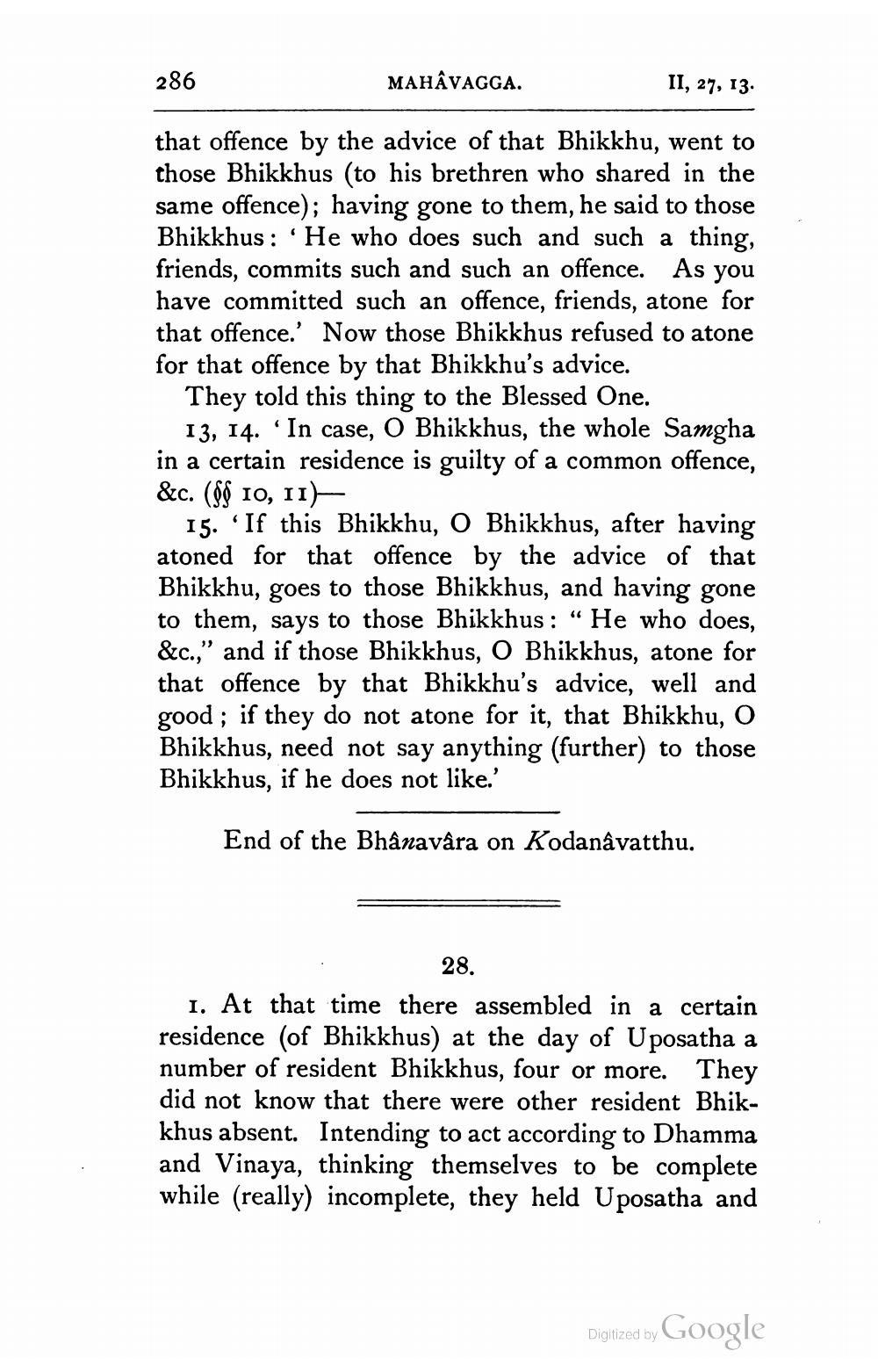________________
286
MAHẬVAGGA.
II, 27, 13.
that offence by the advice of that Bhikkhu, went to those Bhikkhus (to his brethren who shared in the same offence); having gone to them, he said to those Bhikkhus: 'He who does such and such a thing, friends, commits such and such an offence. As you have committed such an offence, friends, atone for that offence. Now those Bhikkhus refused to atone for that offence by that Bhikkhu's advice.
They told this thing to the Blessed One.
13, 14. “In case, O Bhikkhus, the whole Samgha in a certain residence is guilty of a common offence, &c. (&$ 10, 11)
15. If this Bhikkhu, O Bhikkhus, after having atoned for that offence by the advice of that Bhikkhu, goes to those Bhikkhus, and having gone to them, says to those Bhikkhus: “He who does, &c.," and if those Bhikkhus, O Bhikkhus, atone for that offence by that Bhikkhu's advice, well and good ; if they do not atone for it, that Bhikkhu, O Bhikkhus, need not say anything (further) to those Bhikkhus, if he does not like.'
End of the Bhânavara on Kodanâvatthu.
28.
1. At that time there assembled in a certain residence (of Bhikkhus) at the day of Uposatha a number of resident Bhikkhus, four or more. They did not know that there were other resident Bhikkhus absent. Intending to act according to Dhamma and Vinaya, thinking themselves to be complete while (really) incomplete, they held Uposatha and
Digitized by Google




